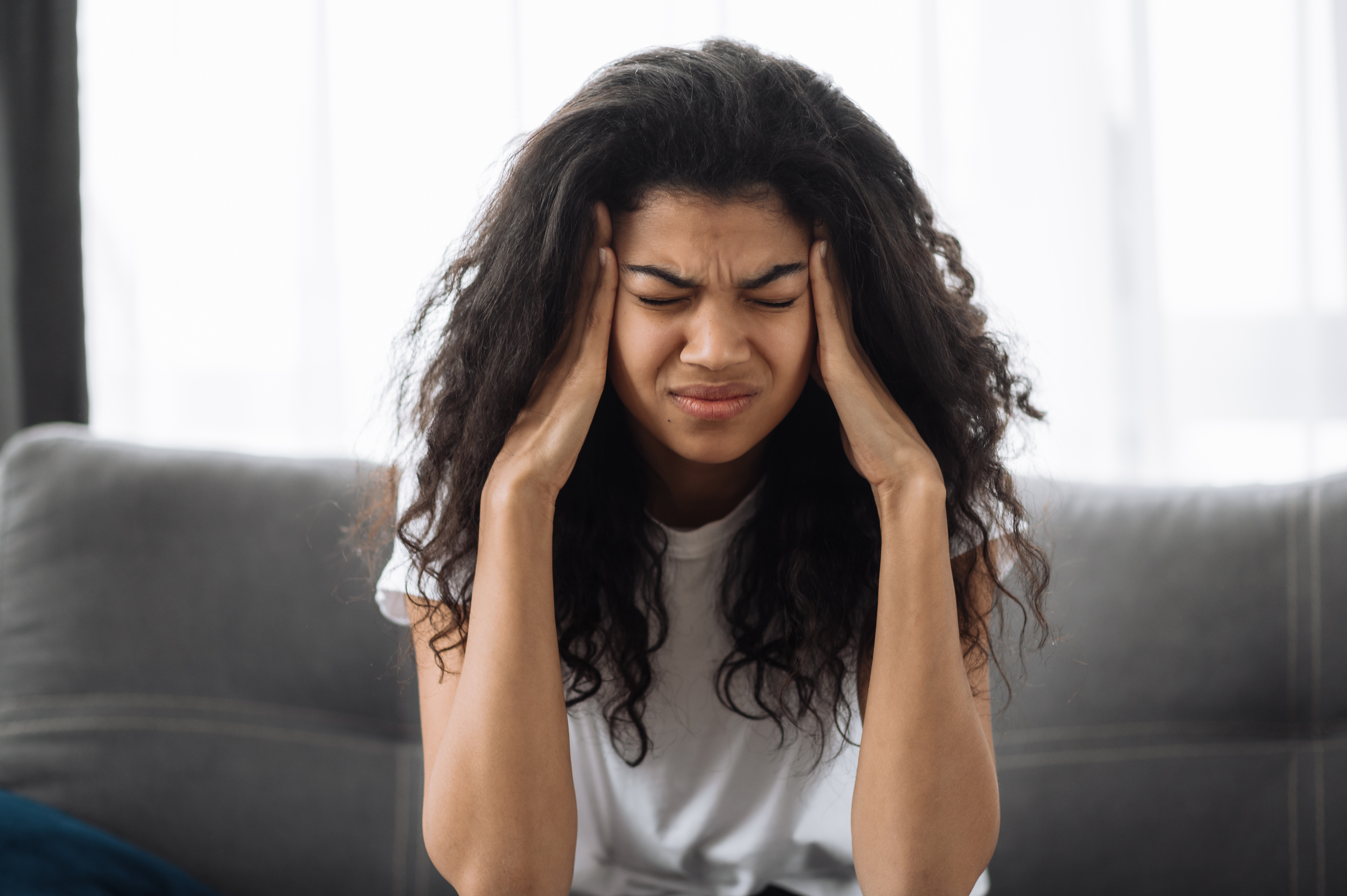Tension Headaches

Tension headaches: What are they?
The most common type of headache is a tension headache. These headaches are often caused by stress and muscle tension. In most cases, tension headaches do not result in nausea, vomiting, or light sensitivity. They do cause a steady ache, rather than a throbbing one, and tend to affect both sides of the head. Tension headaches may be chronic, occurring often, or every day.
How does a tension headache feel?
Tension headache symptoms include:
- Headache with a slow onset
- The head usually hurts on both sides
- The pain is dull or feels like a band or vice around the head
- You may experience pain in the back of your head or in your neck
- A mild to moderate amount of pain is common, but it is not severe
Tension headaches may appear as symptoms of other conditions or medical problems. Diagnosis should always be sought from your healthcare provider.
How are tension headaches diagnosed?
Tension headaches are mainly diagnosed based on the symptoms you report. It may be necessary to conduct a thorough medical exam, which may include other tests or procedures, to rule out underlying diseases or conditions.
Making an accurate diagnosis requires tracking and sharing headache information with your healthcare provider.
During the exam, you may be asked the following questions:
- How often do headaches occur?
- Where does the headache occur?
- What does it feel like to have a headache?
- What is the duration of the headaches?
- Have there been changes in behavior or personality?
- Do changes in position or sitting up cause the headache?
- Do you have trouble sleeping?
- Do you have a history of stress?
- Have you had a head injury?
Depending on the history and neurological exam, further testing may not be necessary. Other tests may be required, however, if the headache is not the main problem, such as:
- Blood tests. To check for underlying conditions, blood tests and other lab tests may be performed.
- Sinus X-rays. This is a diagnostic test used to detect congestion, infection, or other problems that might need to be corrected.
- Magnetic resonance imaging (MRI). Using large magnets, radiofrequency, and a computer, this procedure creates detailed images of organs and structures in the body.
- Computed tomography scan (also called a CT or CAT scan). An imaging procedure that utilizes X-rays and a computer to make horizontal images (often called slices) of the body. CT scans show detailed images of any part of the body, including bones, muscles, fat, and organs. Compared to X-rays, CT scans provide more detailed information.
What is the treatment for tension headaches?
Treatment aims to prevent headaches from occurring. It is imperative to reduce stress and tension in order to manage headaches effectively. Here are some suggestions:
- Getting up and getting to sleep at the same time every day
- Regularly exercising for at least 30 minutes each day
- Regularly eating meals without skipping any, especially breakfast
- Keeping headache triggers at bay, such as certain foods and lack of sleep
- Resting in a dark, quiet environment when necessary
- Management of stress (yoga, massage, or other relaxation exercises)
- Your healthcare provider may recommend medication
Is it possible to prevent tension headaches?
Tension headaches can be prevented by identifying and avoiding headache triggers. It is also helpful to maintain a regular sleep, exercise, and meal schedule. Therapy such as cognitive-behavioral therapy, relaxation therapy, or biofeedback may reduce or eliminate tension headaches if they occur frequently or regularly. Consult your healthcare provider about possible headache medications.
When should I call my healthcare provider?
When a severe headache is the "most severe headache ever," it requires immediate attention.
Tension headaches: key points
- The most common type of headache is a tension headache.
- In most cases, tension headaches do not cause nausea, vomiting, or light sensitivity.
- A tension headache affects both sides of the head, comes on slowly, and feels like a tight band around the head.
- Headaches can be reduced or prevented by changing your lifestyle, including sleeping regularly, working out, and eating regularly.
- Consult your healthcare provider about medicines to treat or prevent tension headaches.
Steps to follow
Here are some tips to help you get the most out of your healthcare appointment:
- Make sure you know why you are visiting and what you want to accomplish.
- Prepare a list of questions you would like answered before Take someone with you to help you ask questions and remember what your provider tells you.
- Write down any updates on diagnoses, medicines, treatments, or tests you receive at the appointment. Also write down any changes in instructions your provider gives you.
- Make sure you understand why a new medicine or treatment is prescribed, and how it will benefit you. Also know what the side effects are.
- Check if your condition can be treated in another way.
- Understand the significance of a test or procedure and the reasons for its recommendation.
- If you don't take the medicine or have the test or procedure, you should know what to expect.
- Write down the date, time, and purpose of any follow-up appointments.
- In case of questions, know how you can reach your provider.
Copyright 2024 UK Fitness Hub | Website designed by The Smarter Web Company | App Privacy Policy | App Terms of Use
